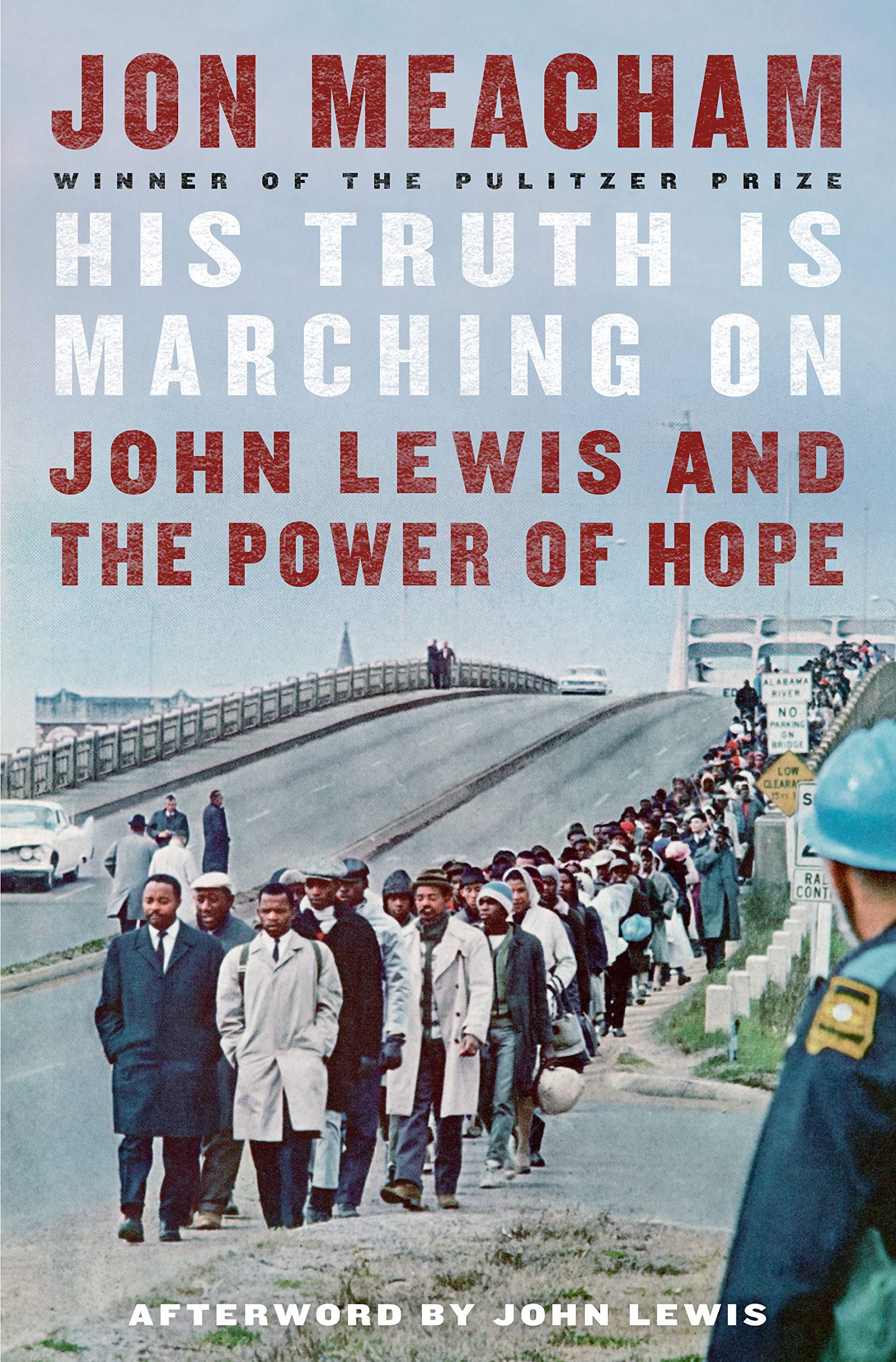
Months ahead of his death last July at age 80, John Lewis informed few people that his cancer of the pancreas was terminal.
One of them was a biographer he highly trusted, a historian and student of the civil rights movement. To add to the attraction, Jon Meacham is also a religious soul who had invested an intense inquiry into Jesus Christ's final words from the cross. This made Meacham a soul mate.
The pair collaborated on His Truth is Marching On: John Lewis and the Power of Hope, which ultimately was a rush job, because the civil rights giant was hoping in 1979 that he may have a few more years to complete the biography. In the end, he had only one year, one with physical pain that Lewis mostly succeeded in keeping secret.
Meacham's writing is thorough in recounting the early years, beginning with Lewis as a shy, serious student who grew up in Troy, a rural segregated Alabama community close to Birmingham. Young John would sermonize to the barnyard chickens, one of the telling anecdotes that Meacham is so skilled at unearthing.
Preaching to farm animals foreshadow the intensity of his religious faith and hope that Lewis would embrace through all of his years. He never officially became a reverend, although he might well have. After all, he started as a student at Nashville's American Baptist Theological Seminary before he began to "get into good trouble" at lunch-counter sit-ins, with the first of his 40-plus arrests, mostly when he was a young adult.
The first third of Meacham's writing focuses closely on the biblical underpinnings and philosophies in the Christian studies of Lewis and his mentor/hero, Martin Luther King Jr. Some readers may impatiently wish to get on with the stories -- the lunch counters, the Freedom Rides, his March on Washington speech, and of course, the Selma beating at the foot of the Pettus Bridge -- but Meacham finds it vital to place the ultimate religiosity of John Lewis at the center of the narrative.
Readers may wish there could have been more details of the post-1960s Lewis as an ongoing voter rights advocate and later, as a congressman for his final 24 years. But His Truth is Marching On offers a bushel-full of essentials, closing with the final words from Lewis himself, pre-planned as an epilogue from one of the American greats of our time.
By Mike Thompson, board member